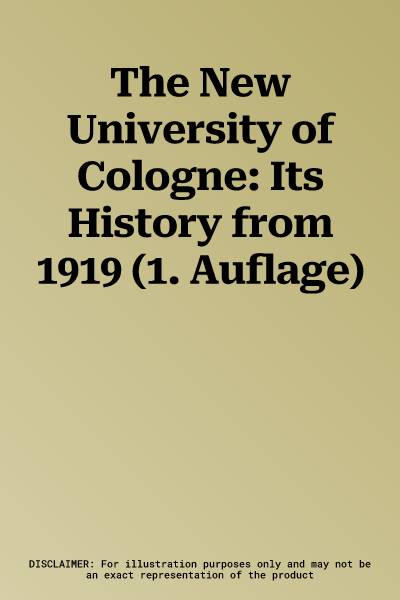The University of Cologne has an unusual history: It was founded - for
the second time - by the city council in 1919, more than 100 years after
its predecessor institution, established in 1388, had been dissolved.
Even as WWI was still being fought, the new university that had grown
out of the Cologne Business School set up in 1901 was taking shape. As
an institution, it combined theory, practice and social research and was
formed in a spirit of progress and republicanism. But what paths did the
university take after these beginnings? How did the Nazi regime, the
establishment of the West German state, the 1968 student protests and
the beginnings of what we now like to call globalisation affect it? Who
were the people who left their mark on the institution and what were the
critical decisions that were made? What was it like being a student in
Cologne in different eras, and what was the relationship between the
university, the city and its people? This book aims to present a rich,
panoramic view of the university's history stitched together from texts,
biographies, images and objects. Together, they produce a vivid image of
the continuities and transformations that shaped the University of
Cologne from 1919 well into the 21st Century. This century has been a
success story so far for the university: state-of-the-art teaching
methods, a broad spectrum of disciplines and subjects, excellence in
research and a very international outlook have made it a beacon of
knowledge. The volume will be published on behalf of the Rector to mark
this year's 100th anniversary of the University of Cologne's
re-establishment. It was conceived and edited by Habbo Knoch, Ralph
Jessen and Hans Peter Ullmann. All three are professors at the
university's History Department and have been leading a research project
into the history of the new university since 2016. A board of experts
made up of members of all of the university's departments guided the
book's production. The chronicle was researched and written in close
cooperation with the project coordinators by the Cologne-based history
agency Reder, Roeseing & Prufer.

